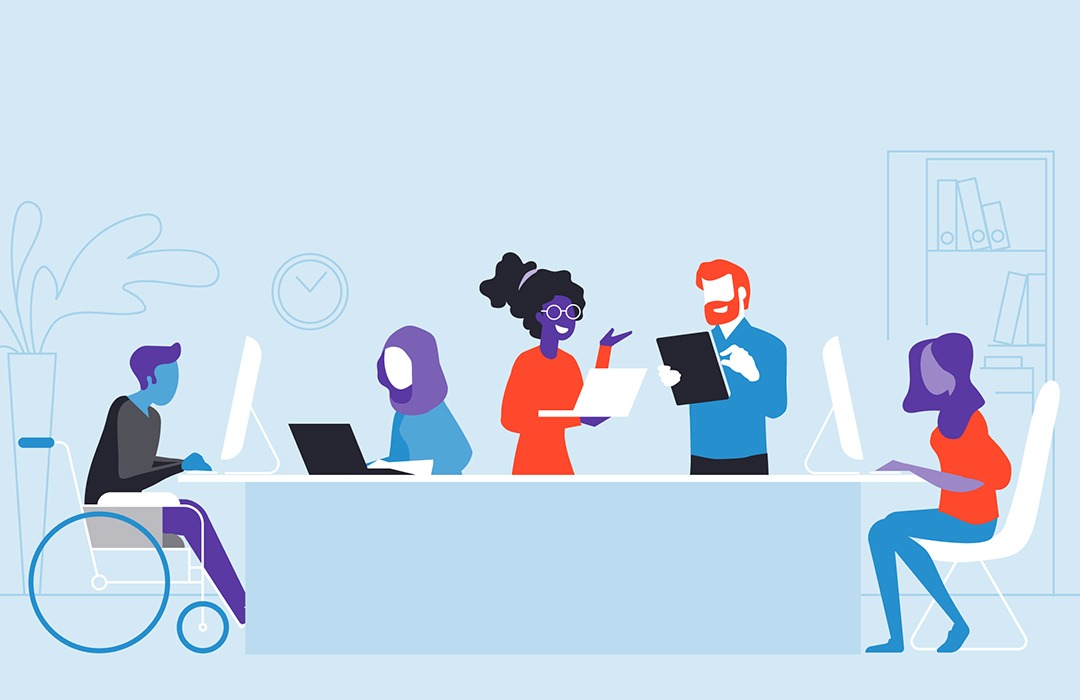
GeneralWritten By: Sreeparna Sarkar
“When we listen and celebrate what is both common and different, we become wiser, more inclusive, and better as an organization.” — Pat Wadors
It is intuitively clear to all of us that diversity matters, no matter what. In a world of progressive technology, growing social movements, and globalization, diversity, and inclusion are inevitable not only in every aspect of life but in the workplaces also. Today’s fast-paced globalization requires more interaction among people from diverse cultures, beliefs, and backgrounds than ever before. Although every workplace is awash with conservations about diversity and inclusion, only a few of them enthusiastically focus on how to make it happen.
With business leaders gearing up for the future of work, the need to create inclusive and empowered workplaces is growing more important. Diversity and Inclusion have always existed except for the dire need for them to grow even more with the shifting nature of the global economy.
Diversity and Inclusion in the Workplace:
So what do diversity and inclusion mean in the context of the workplace?
Diversity, in simplest terms, is the difference of thought, perception, and perspective while inclusion is the culture where all these differences are valued and respected. In a workplace, diversity and inclusion go hand in hand. They are two interconnected concepts but not interchangeable. When people from different races, nationalities, educational and work backgrounds come under the same roof, they bring diverse perspectives and experiences to the room.
Now if a workplace where everyone is diverse in terms of gender, race, or religion, but only certain perspectives of certain groups are valued, may sound diverse but that is in no way inclusive. A diverse and inclusive workplace brings an environment where everyone feels respected, involved, and supported, no matter what his or her role is in the business.
Companies with diverse work atmosphere experience several advantages, which include :
• Increased creativity
• Enhanced employee engagement
• Increased problem-solving
• Improved company reputation
Diverse teams, inclusive management:
Diverse and inclusive teams are not only more innovative, they are more engaged and creative. Several reports and studies have proven that diversity and inclusion work as a catalyst within a workplace boosting innovation and improving financial performance. However, to create such a diverse and inclusive workplace, we should grow as a whole.
Here is how it starts:
• Being aware of unconscious bias
• Listening with empathy
• Establishing a sense of belonging
According to recent research, McKinsey reveals that the companies that are more culturally diverse within their environment outperform their peers who are less diverse in most of the cases. The report also revealed that diversity is not enough until there is inclusion to combine different cultures and experiences. We can utilize our differences to achieve our goals and objectives.
Diversity and inclusion are important concepts that should be applied to every aspect of life, starting with the workplace. We are yet to embrace inclusion at the same pace the business world is evolving. Human beings are born different as Darwin once proved and we have to utilize our differences to generate creativity and innovation. By looking at diversity and inclusion as the key to unlocking business growth, we can create a better inclusive workplace for all of us.
TAGS - best it security solutions
See Also - Diwali - A Celebration of Our Inner Light